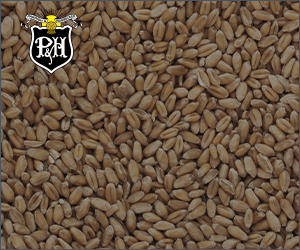In the news
NEWS BITES THAT MATTER
Ridgetown Alumni Mentorship Program
This fall, the University of Guelph Ridgetown Campus is offering a pilot Student Mentorship Program. This new program will see sixteen alumni mentors matched with sixteen students (mentees). Ridgetown Westag Alumni, who are now experienced industry managers and leaders, have stepped up to the plate to support this learning opportunity.
Students involved will have the opportunity to make industry connections and learn new work skills from alumni working in agriculture, horticulture, environmental management, or veterinary technology.
Mentors will help students to improve their communication and networking skills, and help them prepare for future career opportunities as they transition from academic life to today’s employment world. The program will also provide an opportunity for students to improve their leadership skills while learning from an alumnus’ experiences. Key program activities for mentors and mentees will occur monthly through March during the academic school year. This program is a great way for alumni to make a personal impact on a student and give back to the Ridgetown Campus.
The pilot mentorship program is made possible through support from Class of 1990 Alumnus Greg (and spouse Jennifer) Devries, of Dresden and the Ridgetown Agri-Food Foundation’s Learning Trust Fund. The pilot project is being managed by Communications and Advancement, Ridgetown Campus. •
2014 corn crop survey
The Field Crops team at the Ontario Ministry of Agriculture, Food and Rural Affairs has completed its survey of the 2014 Ontario corn crop to determine ear mould incidence and the occurrence of mycotoxins in the grain. These mycotoxins, particularly vomitoxin (DON) produced primarily by Gibberella/Fusarium ear moulds, are grading factors and they can be disruptive when fed to livestock.
The results show an increase in vomitoxin levels compared with the 2013 survey. 66 % (134 of 202 samples) had a DON level of less than 0.5 PPM; 25 % (51) had DON concentrations of 0.5 to 1.9 PPM; and 9 % (17) were found to have DON levels of 2.0 PPM or greater.
With 91% of the samples testing below 2.0 PPM, it appears that the 2014 corn crop should be able to move through the system with few concerns over DON levels. The 2014 survey also shows that increased diligence is needed in monitoring fields for ear mould and elevated DON levels, especially where damage from Western Bean Cutworm or birds is evident.
Further details on the survey results are available at www.gfo.ca/research and gocorn.net. •
Ontario Pesticide Survey
Every Ontario farmer who grows any field crop, tender fruit, vegetable, or other specialty crop is asked to fill out a confidential survey of crop protection products used during 2014. This survey is being conducted by Farm & Food Care Ontario on behalf of the Ontario Ministry of Agriculture, Food and Rural Affairs. This 2014 survey is an extension of the 2013 survey.
Government, commodity boards, and researchers use the information from the survey summary to help improve minor use pesticide registration lists, to work toward safer use of pesticides, and to understand trends in use and the types of crop protection products used.
The survey is anonymous. Only a respondent’s county, crop type, crop protection products used, acres applied, and also acres where no pesticides are applied or organic practices are used are entered in the data base.
The 2014 survey template is available in an easy to use online format at
www.ontariopesticidesurvey.ca. Submissions will be accepted until February 13, 2015.
Farm & Food Care will also accept mail-in, fax or email returns of the survey — contact Bruce Kelly for more details on these options: bruce@farmfoodcare.org or (519)837-1326. •






















